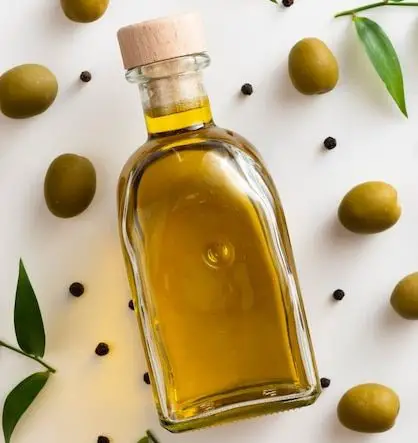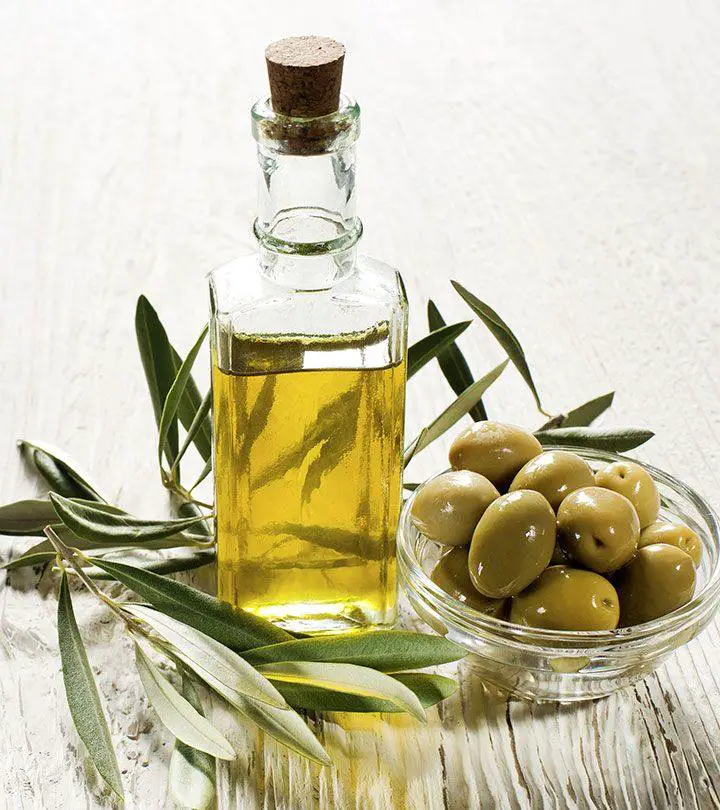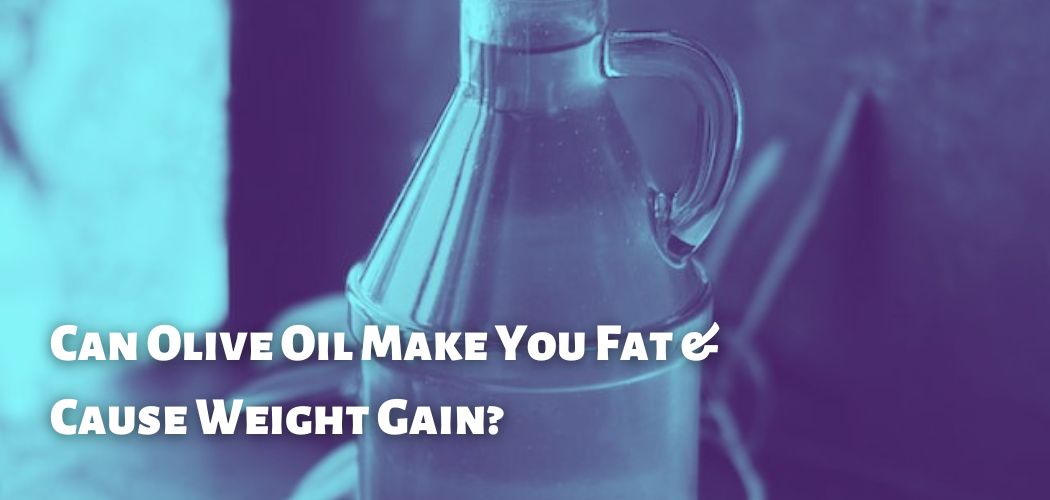Olive oil, a hallmark of the Mediterranean diet lauded for its health advantages, is high in good fats that can help decrease cholesterol and protect against heart disease.
Regarding fats, olive oil is among the healthiest options. Olive oil contains solely fat, hence it is heavy in calories and excessive consumption might lead to weight gain.
Contents
Using Olive Oil To Lose Weight
Perhaps you are at a healthy weight but are concerned that adding olive oil to your diet would cause you to gain weight.
Or you may be overweight and question whether you should exclude olive oil from your diet.
The truth is that olive oil alone will not make you fat. Olive oil contains no secret component that stimulates fat growth. Instead, it is the olive oil’s caloric content.
It is an understood fact that certain meals will have a greater amount of calories than others.

You require calories for energy and to sustain physiological functions, cognitive function, and tissue repair and maintenance.
However, consuming more calories than the body requires leads to weight growth, notably fat gain.
If your body cannot utilize the calories from fruit or olive oil, it stores them as fat until a time when there may be an energy deficit.
The more excess calories your body accumulates, the more fat you gain over time.
Calories In Olive Oil
Olive oil is composed entirely of fat. According to the Cleveland Clinic, fat is the most calorically dense of the three macronutrients, with 9 calories per gram compared to only 4 calories per gram for carbohydrates and protein.
Can Olive Oil Lead To Weight Gain?
Needless to say, olive oil has been around for centuries, playing a crucial part in our culinary culture.
From being a potent component in ancient treatments for digestion to bringing a healthy twist to our routine meals, olive oil has been an indispensable element.
An interesting thing to note here is that in the last few decades this plant-based oil has been quite famous among picky-eaters.

Its nutrient-rich content, which aids in successful weight management along with other health-enhancing features, contributes to its growing appeal among health-conscious individuals.
What if, however, we told you that your “healthy” olive oil was in fact causing you to gain weight?
Obviously, this would leave you bewildered.
So, to make things crystal clear, here is everything you need to know about olive oil and how it can contribute to weight gain.
How Can Olive Oil Contribute To Weight Gain?
This olive-derived oil is a significantly healthier alternative to conventional oils. However, excess of any substance can be detrimental to health.
Despite the existence of health-promoting components in olive oil, it is vital to consume the appropriate amount of this oil in order to reap the health advantages and naturally regulate weight.
Olive oil has a high fat content, making it rich in beneficial fats such as MUFA. This type of oil is estimated to contain 8 calories per milliliter, which, if consumed in excess, can increase your fat and calorie consumption.
In truth, the fat-rich composition suppresses appetite and prolongs satiety, but adding too many olives to your foods and salads might contribute to weight gain.
What Distinguishes Olive Oil From Other Oils?
Similar to olive oil, different oils are rich in a variety of nutrients, however, this varies depending on their purpose.
How you incorporate these oils into your regular diet has a significant impact on your health.
Canola oil, derived by crushing the seeds of canola plants, is another healthy oil that is rich in MUFA and Omega 3 fatty acids.
In addition, mustard oil contains a considerable number of lipids, but also a high concentration of erucic acid, which makes its continuous usage somewhat dangerous for the heart.

In addition to being rich in MUFA and PUFA, sunflower oil also contains a significant quantity of Vitamin E, which helps to preserve the nutritional content of food, but can also cause an increase in blood sugar levels.
Last but not least, ghee is rich in saturated fats, milk proteins, and vitamins that provide the body power, although it is not recommended for children who are still growing.
However, if you have excessive cholesterol, you should avoid ghee in order to keep your heart healthy and maintain your weight.
Then Why Does Everyone Suggest It?
Olive oils are abundant with nutritious plant-based fats that provide your body with the proper amount of MUFA (monounsaturated fatty acids) and PUFA (polyunsaturated fatty acids) (Polyunsaturated fatty acids).
In reality, olive contains the optimal amount of MUFA, which is required for optimal bodily function. It also improves heart health and decreases the risk of cardiovascular disorders over time.

In addition, olives have excellent anti-inflammatory qualities and may also act as a natural laxative and stool softener; this is why most people prefer to consume it raw.
In addition, changing your normal oil with olive oil may aid in blood sugar management and enhance digestion and metabolism.
But, as they say, too much of anything is bad for you, so that’s how olives might sneakily cause you to gain weight!
And in order to achieve a healthy body and heart, you must include nutrient-dense fruits, vegetables, and whole grains to your diet in addition to substituting olive oil for other oils.
Conclusion
Undoubtedly, Olive oil is an extremely healthy source of medium-chain triglycerides and monounsaturated fats, both of which have been proven to possess significant advantages for weight loss.
Even though one could argue that olive oil could be utilized as a detox or as a massage oil, the most beneficial way of using it for weight loss is to integrate it into your daily meals.
Now, it is important to remember that even a small portion of olive oil would be sufficient, so going overboard with it won’t be a wise decision if you’re looking for a little reduction in your waist-line.
